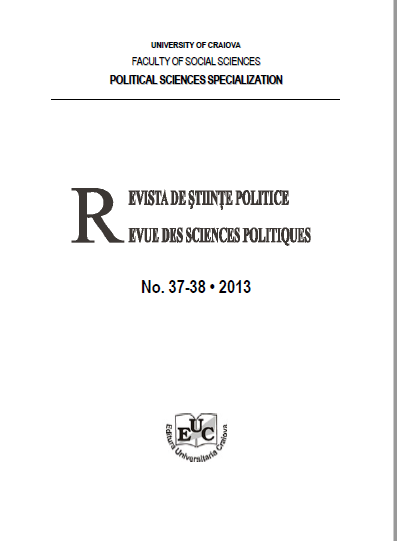Lessons for Post-Communist History: Elements and Objectives of Romanian and Serb-Croat-Slovenian Foreign Policy in the First Past-War
Lessons for Post-Communist History: Elements and Objectives of Romanian and
Serb-Croat-Slovenian Foreign Policy in the First Past-War
Author(s): Mihaela BărbieruSubject(s): Diplomatic history, Political history, International relations/trade, Interwar Period (1920 - 1939)
Published by: Editura Universitaria Craiova
Keywords: foreign policy; Romanian; treaties; the Great Powers; the Serb-Croat-Slovenian Kingdom;
Summary/Abstract: The socio-economical and political conditions which existed in the south-east Europe at the end of World War I influenced the further evolution of Romania and Serb-Croat-Slovenian Kingdom, both of them being interested in the promotion of a foreign policy program in which elements of traditional continuity interfered with the period requirements. Based on the treaties of Versailles System, both states fulfilled most of their objectives becoming independent entities within internationally recognized boundaries. The appearance of the new independent state in central and south-east Europe happened because of peoples’ will expressed as a result of self-determination principle through plebiscitary acts. Both states wanted in the new geo-political order, to defend the national unity of the state and its territorial integrity and they both contributed to the development of the international law and international relations, beginning and sustaining through own actions and setting up of the general and regional security, as well as the solving of the crisis between states in a diplomatic way.
Journal: Revista de Științe Politice. Revue des Sciences Politiques
- Issue Year: 2013
- Issue No: 37+38
- Page Range: 55-62
- Page Count: 8
- Language: English

